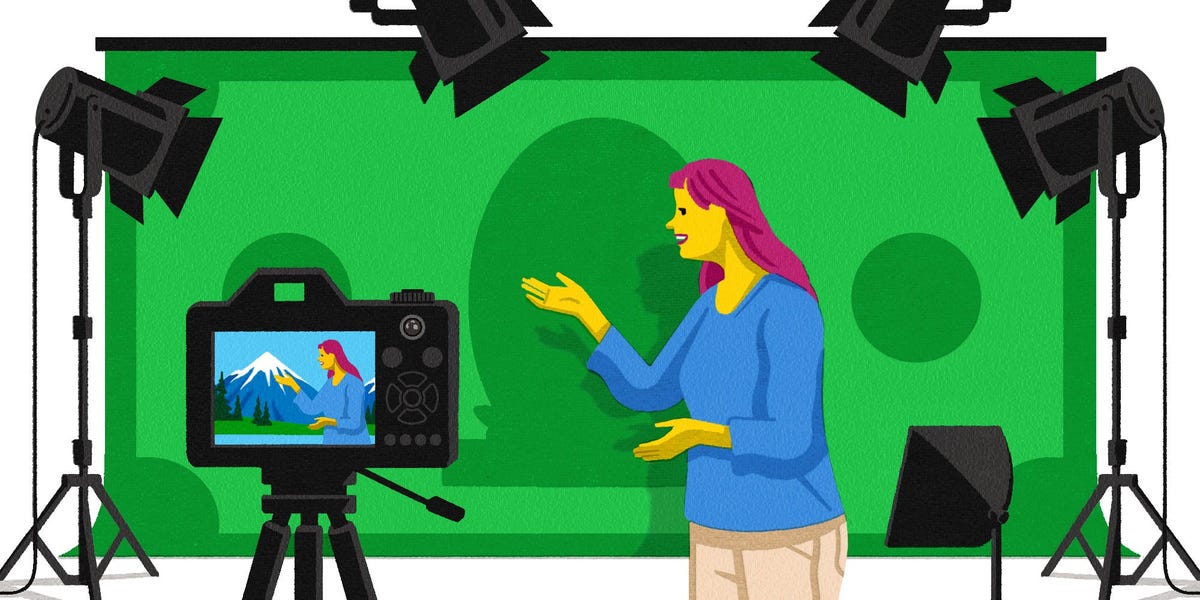- The “creator economy” encompasses a large business ecosystem built around social-media stars.
- Goldman Sachs estimated this year that the creator economy could be a $480 billion industry by 2027.
- This story is part of the “5 Trends to Bet Your Career On” series.
The “creator economy” emerged with the rise of social-media stars like YouTubers and Instagram influencers, and describes the entire business ecosystem that has grown around them.
Since its inception — which tech reporter Taylor Lorenz dates back to the mid-2000s in her new book “Extremely Online” — the industry has grown from early-day fashion and lifestyle influencers who promoted products, to creators across a wide range of niches like personal finance, gaming, and travel, many earning a substantial living.
And it’s not just creators themselves who are cashing in.
There’s also a range of professionals who work for creators, like agents, managers, assistants, or video editors, as well as startup founders and tech execs who have built platforms and companies to help creators make money and build audiences.
Earlier this year, Goldman Sachs analysts estimated that the creator economy was a $250 billion industry, and could reach $480 billion by 2027. The analysts predicted that growth would be driven by investment in influencer marketing and the rise of ad-revenue-share models, particularly in short-form video, on platforms like Instagram, TikTok, and YouTube.
The core way many creators make money today is through influencer marketing. Insider Intelligence forecasts that next year, US influencer-marketing spend will hit $5.89 billion, and that its growth will “remain in the double digits through 2025.“
“The funds are not drying up anytime soon and we are seeing more and more people becoming creators,” said Shannae Ingleton Smith, president and CEO of Kensington Grey Agency. “It’s a viable career space and in many cases pays more than the top tech jobs. Where the advertising dollars are, to me, is a great indication of sustainability.”
From buzzy new brands like Selena Gomez’s Rare Beauty, to established e-commerce giants like Amazon, many companies are using influencers to help drive sales.
But not all creators are making huge incomes. A recent survey of 689 creators by the influencer-marketing platform Mavrck found about 51% made less than $500 a month. In the survey, nearly a quarter of creators said they earned more than $2,000, and about 4% said they earned more than $10,000 per month.
Still, some of those top earners — particularly YouTubers — have built large teams, like the roughly 250-person operation assembled by MrBeast, who Forbes estimated made $82 million between June 2022 and June 2023.
In fact, YouTube has been the source of a large swath of jobs, according to research by Oxford Economics. The firm estimated that last year the YouTube business ecosystem accounted for 390,000 full-time equivalent US jobs. A site devoted to YouTube-focused jobs, called YT Jobs, lists dozens of openings with salaries as high as $130,000.
AI comes to the creator economy
The latest innovation driving the creator economy forward is artificial intelligence.
This year, YouTube unveiled new AI tools and features aimed at simplifying content creation. The industry is betting on AI not to replace creators, but to increase productivity and bring more opportunities for people to make content. Rising AI startups in the creator economy like Crate, an AI platform helping creators streamline the creative process, and Midjourney, an AI model that can generate images, are winning over investors.
These tools can help creators increase productivity. In a recent survey of 2,000 influencers by membership platform Creator Now, 90% said they were using ChatGPT during the content creation process, and 31% said they were using Midjourney. The top reason cited for using AI was to increase the speed of content creation.
YouTube is the top platform for teens in daily consumption, beating Netflix
The creator economy has been boosted by the turn of many users away from social networking and toward entertainment consumption on platforms like TikTok, YouTube, and even Instagram.
That phone-based entertainment experience powered by creators has come to rival traditional media and streaming networks.
“There is already more blurring between the lines of what’s social-media content and what’s traditional media,” said Carmen Sognonvi, travel creator under the username Top Flight Family.
For the first time, more teens are daily watchers of YouTube videos than of streaming content from Netflix, according to a survey last month from investment bank Piper Sandler. 29.1% of teens surveyed said used YouTube daily, compared to 28.7% for Netflix (the top two performers in the survey). Cable TV wasn’t even in the running, with under 5%.
Read the full article here





